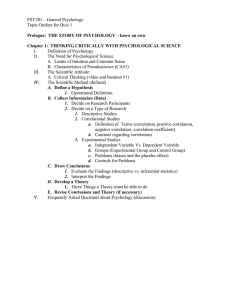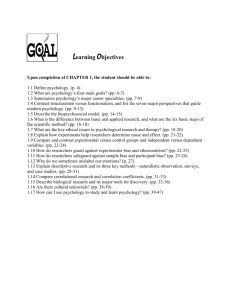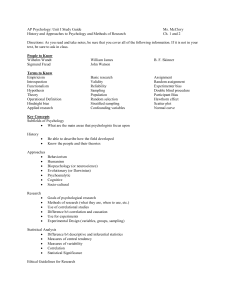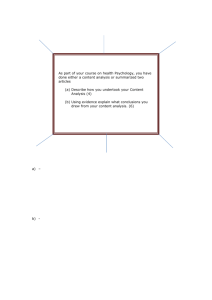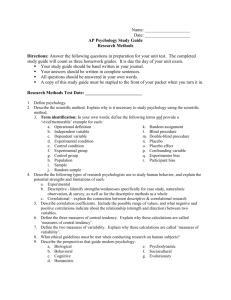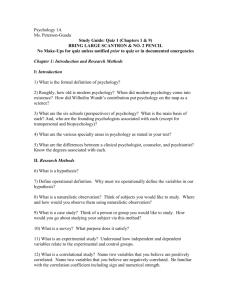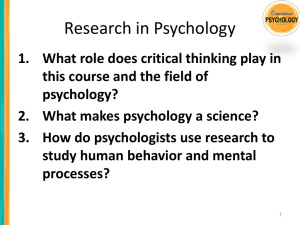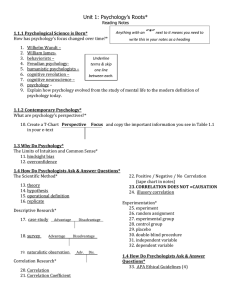Unit 1: Chapters 1 & 2
advertisement
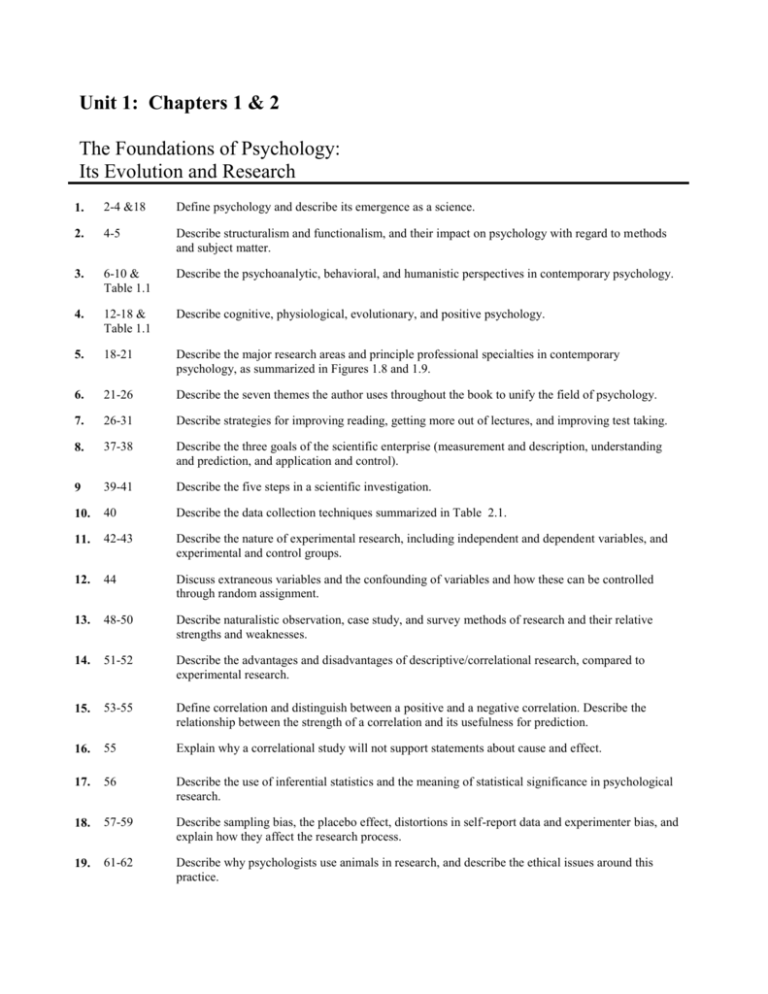
Unit 1: Chapters 1 & 2 The Foundations of Psychology: Its Evolution and Research 1. 2-4 &18 Define psychology and describe its emergence as a science. 2. 4-5 Describe structuralism and functionalism, and their impact on psychology with regard to methods and subject matter. 3. 6-10 & Table 1.1 Describe the psychoanalytic, behavioral, and humanistic perspectives in contemporary psychology. 4. 12-18 & Table 1.1 Describe cognitive, physiological, evolutionary, and positive psychology. 5. 18-21 Describe the major research areas and principle professional specialties in contemporary psychology, as summarized in Figures 1.8 and 1.9. 6. 21-26 Describe the seven themes the author uses throughout the book to unify the field of psychology. 7. 26-31 Describe strategies for improving reading, getting more out of lectures, and improving test taking. 8. 37-38 Describe the three goals of the scientific enterprise (measurement and description, understanding and prediction, and application and control). 9 39-41 Describe the five steps in a scientific investigation. 10. 40 Describe the data collection techniques summarized in Table 2.1. 11. 42-43 Describe the nature of experimental research, including independent and dependent variables, and experimental and control groups. 12. 44 Discuss extraneous variables and the confounding of variables and how these can be controlled through random assignment. 13. 48-50 Describe naturalistic observation, case study, and survey methods of research and their relative strengths and weaknesses. 14. 51-52 Describe the advantages and disadvantages of descriptive/correlational research, compared to experimental research. 15. 53-55 Define correlation and distinguish between a positive and a negative correlation. Describe the relationship between the strength of a correlation and its usefulness for prediction. 16. 55 Explain why a correlational study will not support statements about cause and effect. 17. 56 Describe the use of inferential statistics and the meaning of statistical significance in psychological research. 18. 57-59 Describe sampling bias, the placebo effect, distortions in self-report data and experimenter bias, and explain how they affect the research process. 19. 61-62 Describe why psychologists use animals in research, and describe the ethical issues around this practice. 20. 62-63 Describe the ethical principles governing research with human subjects.
